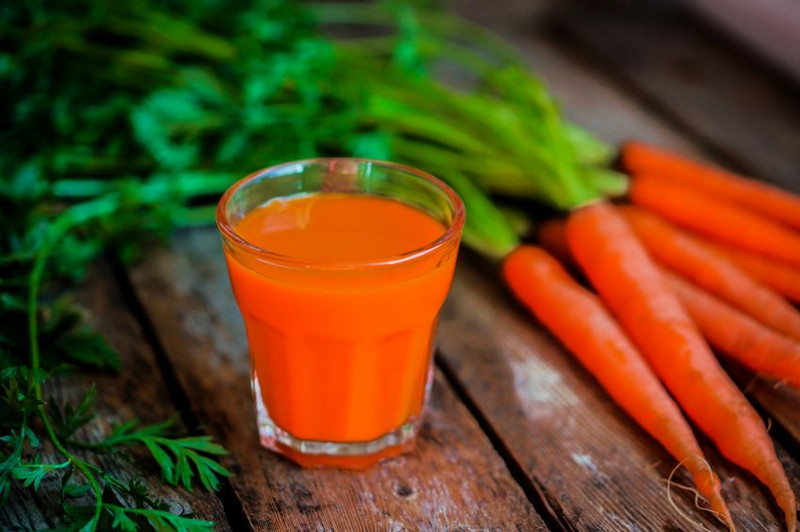Although you can't see your colon, and hopefully you never will have to see it, be assured that it is working on your behalf pretty much 24 hours a day. Also known as the large intestine, the colon is about five or six feet in length and performs double duty inside your body. On the one hand, it is a powerful storage mechanism as well as a waste disposal site. It stores the waste from digested material (from food) until it's time to be excreted. Just as it sounds above, the colon is a wonderful piece of machinery, really, and as such it needs to be treated with TLC ( try loving colon ?) in order to keep it operating efficiently and reliably. Otherwise, you run the risk of health problems that run the gamut from bloating, constipation, gas, and fatigue to allergies, arthritis, hypoglycemia and trouble losing weight, per mindbodygreen.com. That's even before we take it up a notch to more serious issues such as irritable bowel syndrome (IBS), diverticulosis, and colon cancer.
Time for a Colon Cleanse?
One of the best ways to keep your colon healthy is, simply, by keeping it clean, and that usually entails what's known as a colon cleanse. This doesn't mean putting a nozzle on one end of a garden hose, sticking it in your mouth, and turning on the water full blast (do NOT try this at home), although that's sort of the principle, the idea being to dislodge and flush out any digested food that insists on sticking around where it doesn't need to be. Per bodyecology.com, more than 70 million Americans struggle with digestive problems, and many people are not even aware that their colons could be the culprit. One of the more-popular modes of cleansing the colon are colon flushes that are designed to wash out toxins and other waste material that has become lodged inside, possibly turning into sources of disease that can wreak havoc. If you are constipated – typified by bowel movements that are frustratingly few and far in-between – a colon flush can help restore regular bowel movements and restore colon health, per gaiam.com. Natural herbs and water therapies are useful in maintaining the health and healing of the colon.Eight Tips for Caring for the Colon
So, what else can you do besides a colon cleanse to keep that large intestine humming without blockages or other complications? Here are eight strategies, or tips, in no special order, to keep in mind and to stay on top of. Before you dive into any of this, however, be sure to run your ideas and concerns past your health-care professional:- Tip #1: Focus on fiber. You want to have plenty of fiber in your diet because it helps keep food waste moving through your digestive tract while also keeping the intestines spiffy clean while reducing the chances of diseases such as diverticulosis. Fiber-rich foods include bananas, broccoli, prunes, beans, and whole-wheat pasta.
- Tip #2: Get bad food off your menu. Get rid of anything that could be contributing to colon problems, such as processed foods, sugar, alcohol, caffeine, food additives, and fruits and vegetables treated with pesticides, per mindbodygreen.com.
- Tip #3: Drink water. Plenty of it – shoot for eight glasses a day. Lack of proper hydration can result in the accumulation of toxins in your body, boosting the risk for conditions such as constipation. Do you ever feel like you need to go, but when you get seated nothing much happens? Sometimes getting off the stool and sipping through a bottle of water over the next 15 to 20 minutes can get things moving.
- Tip #4: Get a colonoscopy. As described to you, the procedure might sound painful and even make you shudder, but the good news is that you are knocked out the whole time. Go to sleep, wake up what feels like five minutes later and, well, you're done. And, oh, yes, this is intended for the detection of colon cancer. The procedure involves removing and then testing polyps; not everyone has them, and most of them are benign anyway. It is recommended for anyone over the age of 50, and it may be advisable to get one every three to five years after that, depending on factors such as family history and if polyps are found in previous colonoscopies.
- Tip #5: Exercise. In other words, keep moving – run, swim, walk, bike, pump weights, whatever – exercise speeds up bowel action and spurs healthy elimination of waste, per mindbodygreen com.
- Tip #6: Limit red meat consumption. Yeah, it tastes great, but it has been linked to serious disease involving the digestive system. Also steer clear of high-fat foods, per Cleveland Clinic.
- Tip #7: Use Supplements. Magnesium, for instance. Note that it is a common ingredient found in laxatives and antacids.
- Tip #8: Juicing. This falls into the area of colon cleansing, as discussed above. This is best done through the blending of juices, per livestrong.com.

